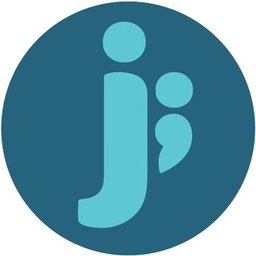Bioinformatics Specialist Consultant
Job Description
Overview
The Reaching Impact, Saturation, and Epidemic Control (RISE) project is a multi-year global project funded by the United States Agency for International Development (USAID) working with countries to achieve a shared vision of attaining and maintaining epidemic control, with stronger local partners capable of managing and achieving results through sustainable, self-reliant, and resilient health systems. RISE South Africa is seeking to fill several positions to fulfill its project mandate. The Bioinformatics Specialist Consultant is a Jhpiego position funded from June to September 2025. Under the direction of the Senior Technical Advisor for the USAID-funded Vaccine Readiness Project in South Africa, the Bioinformatics Specialist Consultant will serve as the lead expert in establishing and operationalizing a new Bioinformatics Hub, focused on genomic surveillance of pandemic-prone diseases. This pivotal role involves integrating outputs from genomic data analysis workflows with epidemiological data, developing comprehensive training programs, and delivering hands-on capacity-building to public health professionals and scientists. In collaboration with stakeholders from the Notifiable Medical Conditions Surveillance system (NMCSS) at the National Institute for Communicable Diseases (NICD), the goal is to leverage genomic data for enhanced early detection and near real-time monitoring of life-threatening infectious diseases, thereby strengthening indicator-based surveillance (IBS).
Responsibilities
- Conduct a thorough scoping of the current indicator-based surveillance (IBS) system at NICD, including an assessment of available epidemiological data sources, laboratory systems, and existing data integration mechanisms relevant to genomic surveillance.
- Identify and document specific training requirements and knowledge gaps within NICD personnel related to bioinformatics, genomics, and pandemic preparedness.
- Map and critically review current genomic data analysis workflows used within NICD and recommend improvements for efficiency, scalability, and integration with IBS systems.
- Design, develop, and refine a comprehensive capacity-building and training plan focusing on genomic systems for pandemic-prone diseases. .
- Create high-quality, engaging, and practical training materials, including presentations, tutorials, hands-on exercises, standard operating procedures (SOPs) for bioinformatics pipelines, and relevant case studies.
- Develop curricula for training programs on genomic systems that enhance early detection and promote near real-time detection of outbreaks, specifically utilizing whole-genome sequencing and advanced bioinformatics analytical approaches.
- Develop curricula for training end-users, health professionals, and other relevant stakeholders on the effective use and interpretation of data from the new Bioinformatics Hub and the Notifiable Medical Conditions systems.
- Roll out and pilot the developed training programs to identified target audiences within NICD and among external health professionals.
- Facilitate interactive training sessions, providing clear explanations, practical demonstrations, and individualized support.
- Actively solicit feedback from trainees and stakeholders to refine training materials and delivery methods, ensuring continuous improvement.
- Compile a comprehensive report summarizing all activities, methodologies, findings, challenges, recommendations for future development of the Bioinformatics Hub, and an assessment of achievements against the defined objectives.
- A comprehensive report detailing the current indicator-based surveillance (IBS) system at NICD, including an inventory of available data, existing infrastructure, and identified training requirements specific to genomic surveillance.
- A detailed document outlining current genomic data analysis workflows, identifying bottlenecks, areas for optimization, and integration points for new bioinformatics tools and pipelines.
- A structured plan for building bioinformatics capacity, including curriculum outlines, training modules, target audience identification, and a detailed schedule for training rollout. This plan should address both theoretical knowledge and practical application.
- Development of high-quality, practical training materials (presentations, exercises, practical guides, case studies) for all planned training programs, focusing on genomic systems for early detection and near real-time monitoring of outbreaks.
- Successful piloting of developed training materials with selected target groups, capturing feedback for refinement.
- A comprehensive report summarizing all activities, methodologies, findings, challenges, recommendations for future development of the Bioinformatics Hub, and an assessment of achievements against the defined objectives.
- PhD. In Bioinformatics or related scientific field
- Minimum of 7 years of demonstrable experience in bioinformatics, with a strong focus on genomic data analysis, particularly for infectious diseases.
- Proven experience in designing, implementing, and managing bioinformatics pipelines (e.g., for WGS data from bacteria, viruses).
- Extensive experience in developing and delivering technical training and capacity building programs, ideally within a public health or research setting.
- Familiarity with indicator-based surveillance (IBS) systems and epidemiological data would be a significant advantage.
- Prior experience in setting up or contributing to the establishment of bioinformatics units or hubs is highly desirable.
- Proficiency in programming languages commonly used in bioinformatics (e.g., Python, R).
- Experience with reporting and BI tools such as Power BI.
- Expertise in using and implementing open-source bioinformatics tools and databases.
- Experience with working in Linux/Unix environments including high-performance computing (HPC) environments.
- Knowledge of various sequencing technologies (e.g., Illumina, Oxford Nanopore) and their associated data formats.
- Knowledge of (genomic) data sharing best practices.
- Strong scientific writing skills and research methodology
- Excellent communication, presentation, and interpersonal skills, with the ability to convey complex technical information to diverse audiences.
- Ability to work independently and collaboratively within a multidisciplinary team.
RECRUITMENT SCAMS AND FRAUD WARNING
Jhpiego has become aware of scams involving false job offers. Please be advised:
Recruiters will never ask for a fee during any stage of the recruitment process.
All active jobs are advertised directly on our careers page.
Official Jhpiego emails will always arrive from a @Jhpiego.org email address.
Please report any suspicious communications to
MNCJobs.co.za will not be responsible for any payment made to a third-party. All Terms of Use are applicable.
Job Detail
-
Job IdJD1442308
-
IndustryNot mentioned
-
Total Positions1
-
Job Type:Full Time
-
Salary:Not mentioned
-
Employment StatusPermanent
-
Job LocationSouth Africa, South Africa
-
EducationNot mentioned



